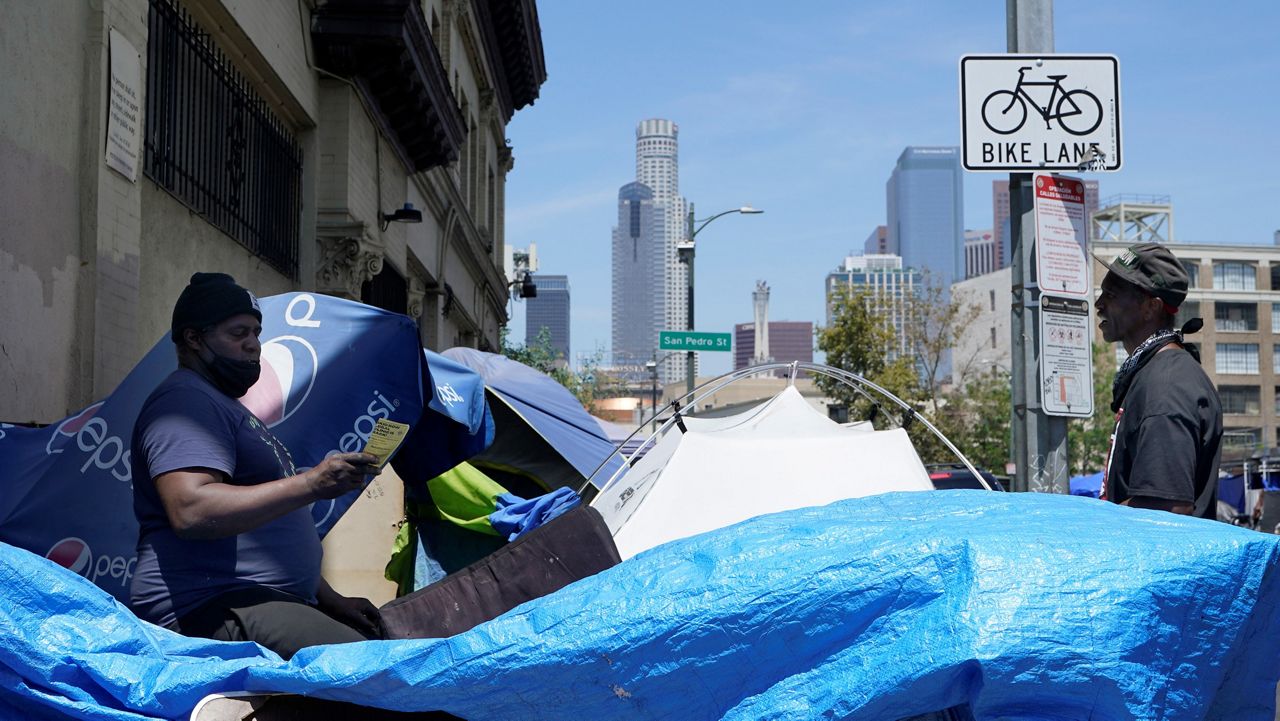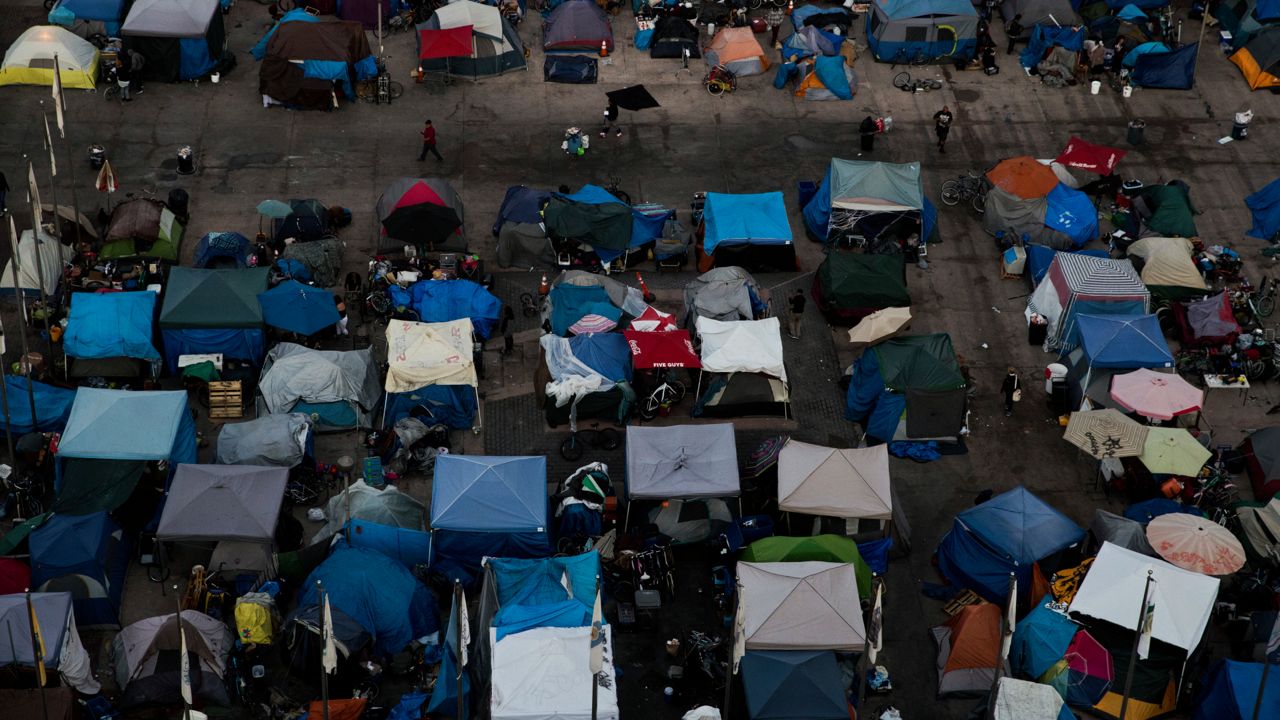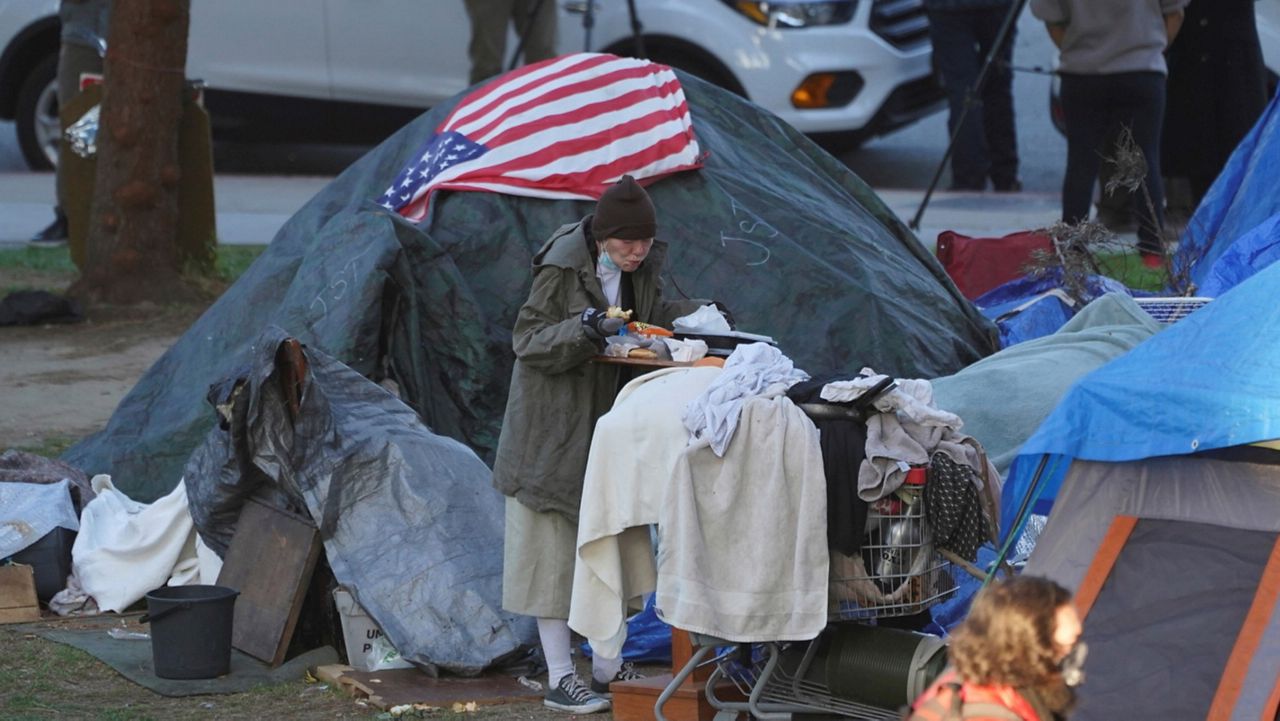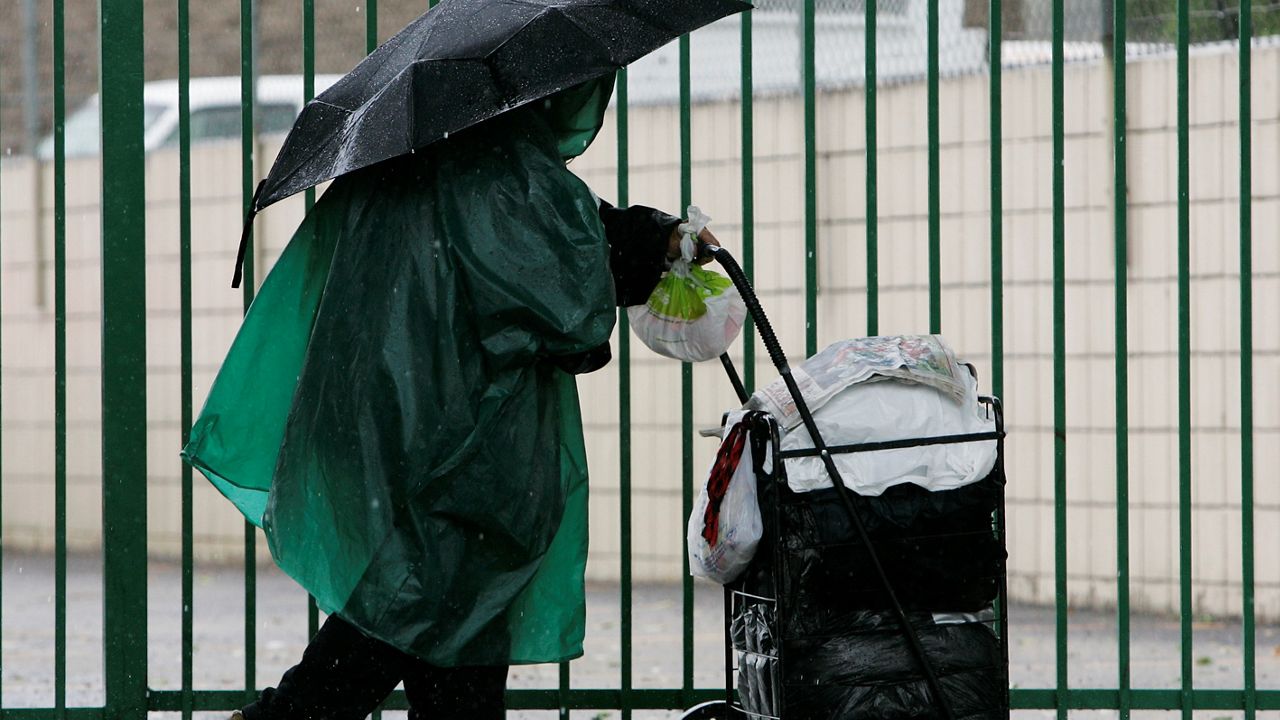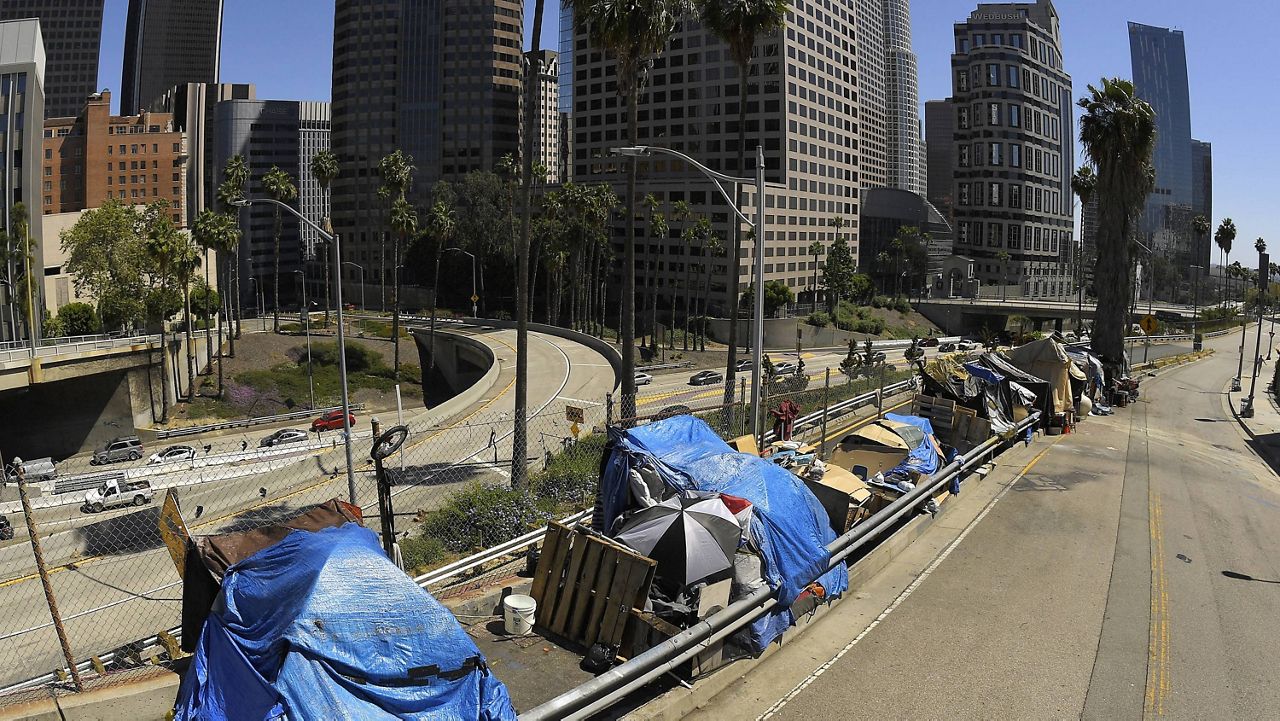LOS ANGELES (CNS) — Los Angeles County Friday launched a fleet of mobile medical clinics to make daily stops at encampments throughout the area to address urgent health and social needs among people experiencing homelessness.
Each Housing for Health mobile medical unit is equipped with full-service exam rooms to provide primary care, such as vaccines and medications; urgent care procedures such as wound care, ultrasounds, and blood work; and woman-focused care such as cervical cancer screening, diagnosis for sexually transmitted diseases, obstetrics, and prenatal care.
Other services include day-of lab results, behavioral health care, psychiatry, enhanced care management, field-based medically assisted treatment and care transition.
The clinics are staffed by a team of doctors, mental health professionals, nurses, substance use counselors and social workers. A passenger van is also assigned to each mobile medical truck to assist in bringing unhoused people to specialty care centers, shelters, clinics or other programs where follow-up health care or social services can be provided.
"While efforts continue to expand our shelters and provide more affordable housing, we must first take care of people where they live — under bridges, in alleyways and urban encampments," Supervisor Hilda L. Solis said in a statement.
"This is a necessary strategy to save lives and build trust among a highly vulnerable population," she said. "Mobile medical units are a major leap forward in our efforts to reverse the mortality rates among our homeless population, reduce preventable hospital visits and direct cost-efficient medical care where it's urgently needed."
The mobile clinic program was designed to fill health care gaps identified during the county's emergency response to protect homeless individuals from COVID-19. While deployed doing COVID-19 outreach and vaccinations, clinicians and outreach workers gathered data about encampments throughout the county. Housing for Health leaders mapped out mobile clinic routes based on needs identified through those surveys.
"Our COVID response efforts, which included more than 70% of our homeless population being vaccinated, clearly showed us just how successful we can be with direct outreach, focused and coordinated medical care and compassion," said Sarah Mahin, director of Housing for Health. "These mobile clinics will continue our ability to provide consistent, low-barrier trauma- informed care that is comprehensive, responsive and patient-centered."






